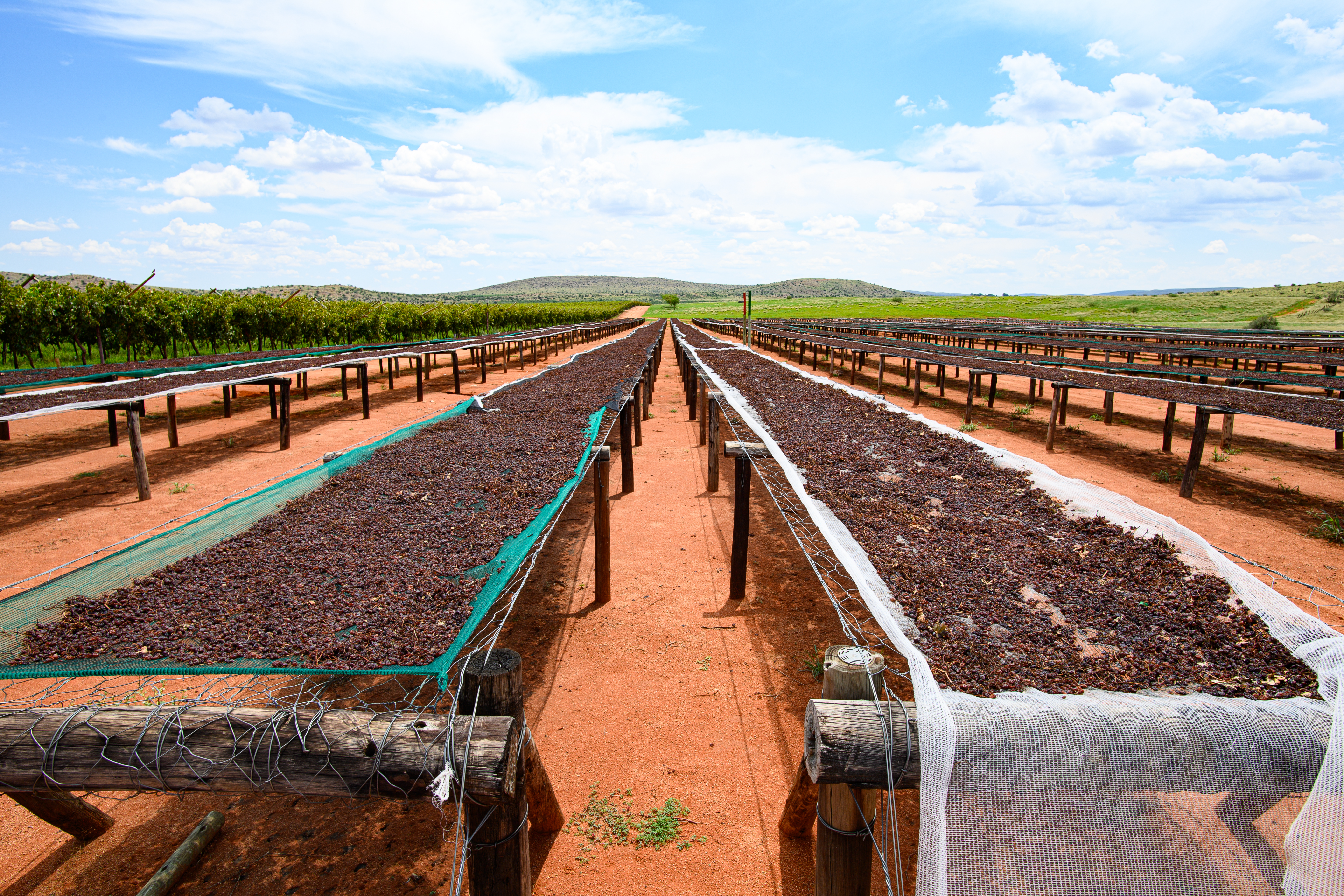Growers in South Africa have begun using a net-drying
process, whereby raisin grapes are sun-dried on elevated
nets. The approach allows for natural wind to circulate
around the fruit, with any rainfall irrigated through the net
to prevent damage.
The raisins are also dried on 19mm stone courses, ensuring
the product is not damaged during rainfall. Meanwhile, in
the Orange River region, drying racks are used to prevent
sultanas from being exposed to direct sunlight, contributing
to the fruit’s beautiful light amber colour.
Such techniques are ideal in South Africa, where pest and
disease pressure are lower due to the hot, dry climate.
Furthermore, as Ferdie Botha, chief executive of industry
body Raisins SA, explains: “These techniques aim to protect
the environment, public health and human communities, as
well as ensur(ing) complete traceability.”
Wider social and environmental initiatives are underscoring
this latest innovation in farming practices. Raisins SA is
currently running a project whereby emerging female
farmers are helped to construct their own drying facilities.
These women are also being trained in how to properly
prepare the land prior to vineyard planting and are taught
about the latest fertiliser programmes and vine pruning
techniques.
This work is also being backed by a new Vine Academy &
Model Farm in Kakamas in the Northern Cape, which trains
students in the best viticulture practices and educates
farmers in new techniques.
Socially conscious initiatives such as these, combined with
the compulsory audits which ensure the new drying facilities
meet the requisite food safety and quality standards, are
helping to enhance the long-term sustainability of the SA
raisins industry.
